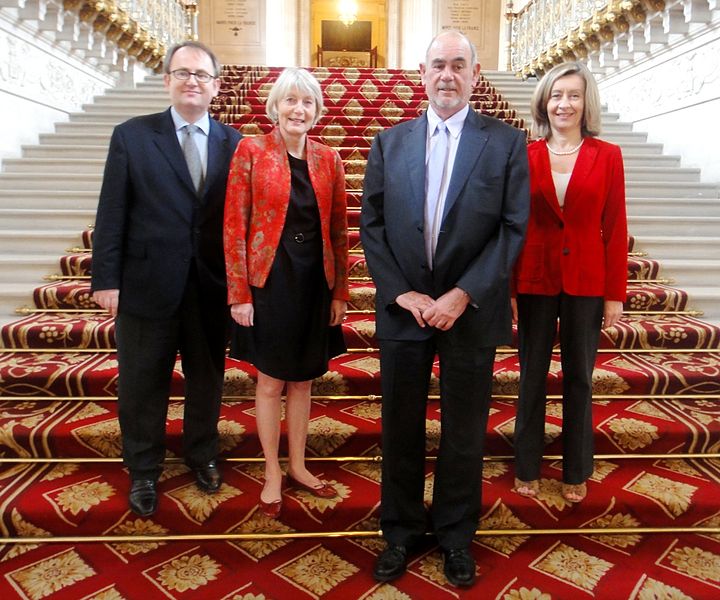

Image by Alain Fontaine
Over the years we wrote quite a lot (relative to the size of the nation) about software patents in New Zealand, where patent lawyers have been fighting/waging their PR war against software developers; local lawyers fought alongside companies like IBM and Microsoft with their lobbyists (other lawyers). Some firm called "Shelston IP" continues this PR war (warping public perception) in Lexology by advancing the pro-software patents stance. To quote:
In? Out? Either way, talk of software patents has dominated discussion of the New Zealand Patents Bill for several years, causing unfortunate delay for a much needed update to New Zealand patent law. However, resolution may be on the horizon. Following fierce lobbying by many in the New Zealand IT sector, the Government has announced a new proposed amendment to the Bill, hailed by some as an effective end to software patents in New Zealand. The reality? Unsurprisingly perhaps, much less clear cut.
[...]
n the latest development, the Government has proposed a new replacement provision, which keeps a prohibition on patents for computer programs “as such”, but includes two further clarifying principles. Firstly, a claim in a patent (or application) relates to a computer program as such, if the actual contribution made by the alleged invention lies solely in it being a computer program. Secondly, a series of factors are set out, which must be taken into account in identifying the actual contribution made by the alleged invention. Therefore it is the nature of the “actual contribution” which the invention makes to the existing art which will be the touchstone for determining patentability. If such contribution arises solely from a computer program, it will not be patentable. If the contribution is judged to arise from another aspect of the invention, it will be patentable.
[...]
At a commercial level, the decision to take a significantly narrower path in New Zealand than in Australia, may have real implications for New Zealand software developers who find that software which does not infringe any New Zealand patents, may infringe Australian patents when marketed there. We may also find that over time, the much debated question of whether software patents stifle or encourage innovation, is answered by a geographical shift in the Australasian industry, one way or the other.
Tens of thousands of software patents in Germany and Europe present enormous cost and liability risks, especially for SMEs. Several German SME associations welcomed the Parliament's decision. However they warn against giving all the responsibility to Brussels, as the EU has been consistently incapable of providing software developers with legal certainty. "Germany now has to implement this decision in law, to send a strong signal towards Brussels," says Johannes Sommer of BIKT, one of the associations.
At an expert meeting in the Parliament on 13th May, in which FSFE also participated, industry associations BIKT and BITMi proposed changes to German copyright and patent law. These proposals would also affect software patents which have already been granted. The first proposal is to add a "protective shield" clause to German copyright law , introducing a blanket ban on the enforcement of patent claims with regard to software. The second proposal to be implemented in German patent law makes sure that the effect of patent claims shall not extend to works protected independently by copyright. Both proposals would prevent that patents on software can be enforced against software developers. The FSFE supports both proposals.
Action brought by Spain against the Regulation on the unitary patent calls the judiciary character of the Boards of Appeal of the EPO into question.
“I predict that the Bundestag request against software patents will be ignored, and that they will vote for Unipat [unitary patent] instead”
--Benjamin HenrionDan Gillmor incorrectly says here in The Guardian that software patents are in a state that they're not in. He is corrected with the statement: "Europe is unfortunately far away from excluding Software Patents" (just not endorsing them). The FFII's president, Benjamin Henrion, says: "I predict that the Bundestag request against software patents will be ignored, and that they will vote for Unipat [unitary patent] instead #backdoor"
When even companies that pretend to like FOSS are collecting software patents we remain stuck between large American corporations that spy on us and gain monopolies on algorithms. It is a sad state of affairs, but that's just where we are. ⬆